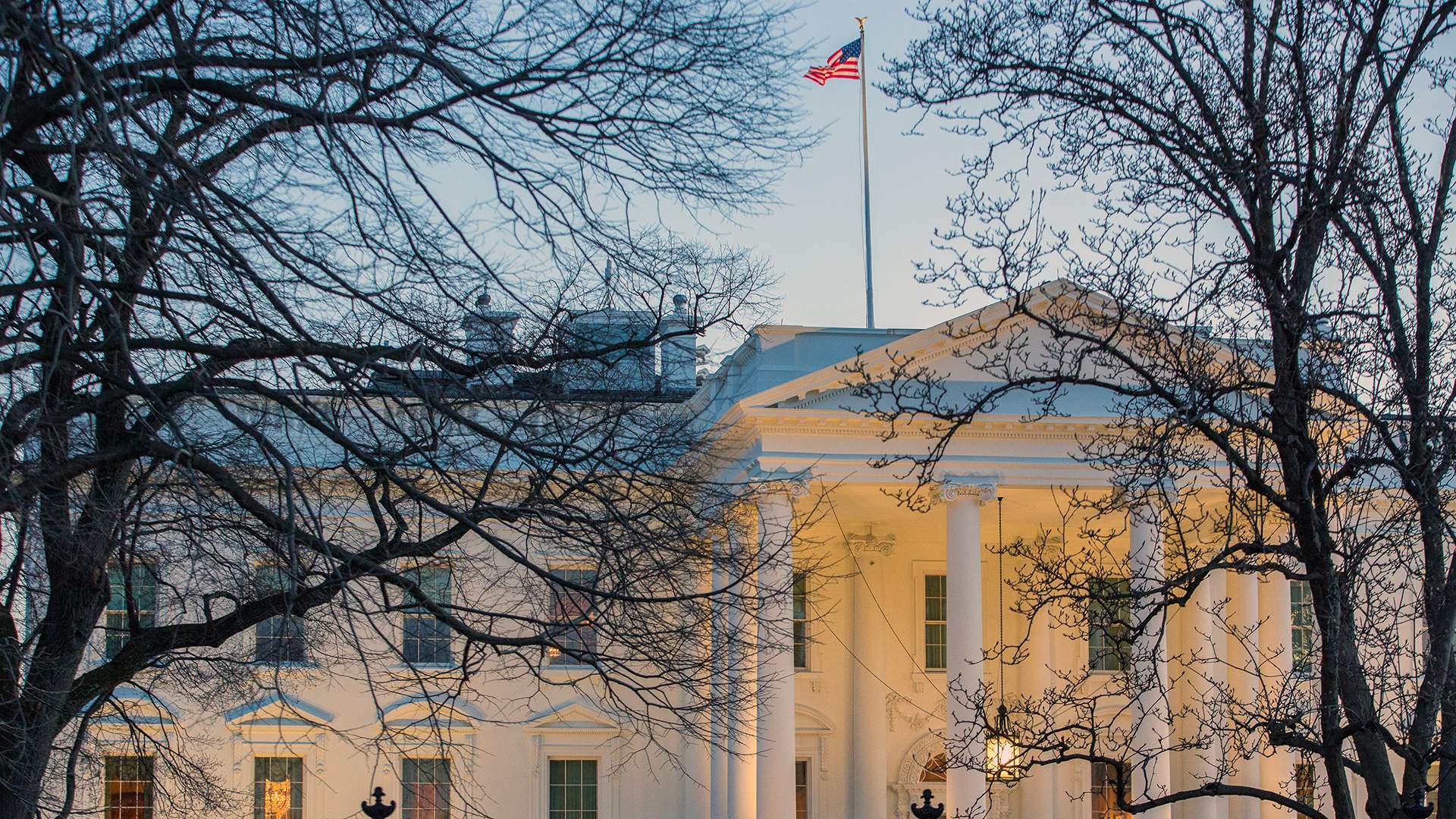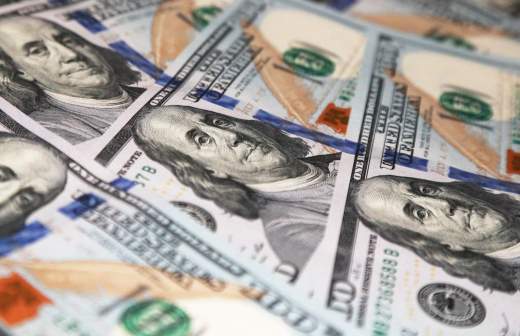Trumpopo Falls: how the new US tariff policy will affect the African economy

Donald Trump announced the introduction of duties on imports from 184 countries. The United States has limited some to "standard" tariffs of 10%, while others will have to rethink the structure of their economy and optimize costs. Among the latter are 14 African countries. Izvestia has studied how the policy of American protectionism will affect them.
Basic numbers
The main purpose of the import tariffs is to reduce the huge (almost $1.2 trillion) U.S. trade deficit and, as a result, stimulate the national industry. By the end of 2023, trade with the countries of the African continent amounted to only 2% of this amount, but it also maintained a negative imbalance for the United States. According to a study by the Russian International Affairs Council, the total value of U.S. exports to Africa decreased from $32.9 billion in 2011 to $26.7 billion in 2021, while imports decreased from $93 billion to $37.6 billion. Collectively, this is just over a quarter of the total trade turnover of the continent's countries with China.
However, for 14 African states, the new policy of the White House was very bad news. The increased tariffs from April 1 apply to goods from South Africa (30%), Madagascar (47%), Tunisia (28%), Côte d'Ivoire (21%), Botswana (37%), Algeria (30%), Lesotho (50%), Angola (32%) and Mauritius (40%). For a number of other countries, the difference between the "base" tariff rate of 10% and their "individual" coefficient is not so great. Cameroon and the Democratic Republic of the Congo received 11%, Nigeria - 14%, Mozambique (16%), Zambia (17%).
At the same time, Libya is not on the list, although the trade deficit with it is almost $ 1 billion.
Double motivation
On the one hand, experts point to the obvious logic of Washington's gradation. It is based on the trade balance (i.e. the difference between exports and imports). On the other hand, the White House clearly demonstrates the political motivation of its decisions.
In this sense, the example of South Africa, one of the largest economies on the continent, is particularly indicative, focusing specifically on the American market. Its losses will be the most significant, says Vsevolod Sviridov, Deputy Director of the Center for African Studies at the National Research University of the Higher School of Economics.
— Of the $10 billion of the American negative balance with African countries, $7 billion is made up of goods from South Africa, so the republic will receive the most damage from the tariffs imposed by Trump. On the one hand, we can expect a reduction in high—performance sectors of the economy, on the other hand, there is an opportunity to reorient exports to Africa and Asia," the expert points out.
The duty–free trade program for Africa (the African Growth and Opportunity Act, AGOA), adopted under George W. Bush, allowed 35 countries on the continent to export 1,835 items of goods duty-free to the United States and became an epochal event for the economy of the African continent at that time, opening up extensive trade and production prospects.
In 2015, the agreement was extended for another 10 years. However, negotiations on another extension, which took place all last year, did not bring results. It was thanks to AGOA that Toyota, BMW, Mercedes, VW and Ford factories appeared in South Africa. The amount of annual exports of cars to the United States was $2-3 billion. According to experts, after April 2, talks about extending the agreement actually lose all meaning. However, despite this, Pretoria does not give up hope of obtaining a tariff exemption from the White House for a group of certain goods. This was stated by the Minister of Foreign Affairs of the Republic Ronald Lamola.
At the same time, he indicated that in parallel with this, South Africa will look for new sales markets. "We are exchanging views with colleagues from Nigeria, Ethiopia, Algeria, Great Britain, Canada and the European Union,— Lamola said. — They concern both the difficulties that have arisen in connection with the actions of the US administration to impose new tariffs on imported goods, as well as geopolitical issues. We all need to work together and seek joint solutions, as well as strengthen the multilateral peace" (quoted by RIA Novosti).
Meanwhile, Washington has repeatedly expressed dissatisfaction with the reform of land legislation being carried out by the South African government. We are talking about a law passed in January that simplifies the expropriation of land with the payment of fair compensation. Thus, the Government of the country is trying to resolve the existing racial disparity in land ownership that has remained in the country since the apartheid era. To American right-wing conservatives, the provisions of this law and the practice of its application seem to discriminate against the white minority. South African-born Elon Musk has repeatedly returned to this topic. "Why do you have an openly racist law on property rights?" he asked the President of the Republic, Cyril Ramaphosa, on social media.
Earlier, Donald Trump spoke in the same spirit. "The United States will not tolerate this, we will act," Trump wrote on the Truth Social network. Under this pretext, the US president was going to stop providing financial assistance to the Republic of South Africa. However, according to Vsevolod Sviridov, this is just a reason for political pressure.
— The Trump administration has decided to publicly punish South Africa for its independent foreign policy: the "wrong" position on the crisis in Ukraine, rapprochement with China, and support for BRICS. In addition, in the Republic of South Africa, a significant part of the business is focused on American markets, and Washington believes that by exerting pressure on the country's leadership, they will be able to push the pro-Western part of the country's political circles to activate. The de facto land reform in South Africa has not even begun, it is just an excuse to increase pressure, which is well perceived by the Trump electorate," the Izvestia interlocutor points out.
America's Disconnected Pants
The highest tariff of 50% went to Lesotho. The textile industry of this kingdom will receive the main and, in fact, the only blow. The fact is that 40 thousand out of 2 million of its citizens work at Levi's factories, where jeans of this famous brand are produced. It is significant that, being formally American, the company closed the last two plants in the United States 20 years ago.
It is noteworthy that two kingdoms, Lesotho and Eswatini, until recently remained the only ones in Africa whose trade turnover with the United States exceeded the volume of trade with China. According to experts, this already small list is likely to decrease again in the near future.
Another obvious political decision was made regarding Angola. The fact is that the government of this country has been very successful in bilateral relations with the United States during the presidency of Joe Biden. An agreement was signed to expand military cooperation, and oil exports grew steadily, reaching a six-year high last year. Even the 46th President of the United States made his last international visit to Angola. In this context, the Government of the country logically supported Kamala Harris in the November elections. Now, Angola, which accounts for 61% of the extractive industry (oil, precious metals, timber), will also have to significantly restructure its export structure.
At the same time, as Vsevolod Sviridov emphasizes, by introducing new tariff rates, the White House noted not only opponents, but also allies.
— Angola has made an overt bet on the Democratic Party. Algeria probably received a 30% duty because of its balanced foreign policy position. On the other hand, there is a whole block of states that have not received additional bids: Ghana, Egypt, Kenya, and Morocco are key political and economic partners in the United States, with whom they have significantly decided not to spoil relations, the expert notes.
The example of Angola is indicative for the whole of Africa, whose exports are characterized by a strong raw material component. As an alternative to tariffs, Trump suggests contractors move production to the United States, which, for obvious reasons, oil and mining companies cannot afford. According to experts, in the new conditions, African producers are doomed to look for new markets, as well as to strengthen cooperation within regional organizations.
Переведено сервисом «Яндекс Переводчик»








